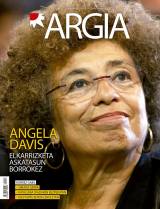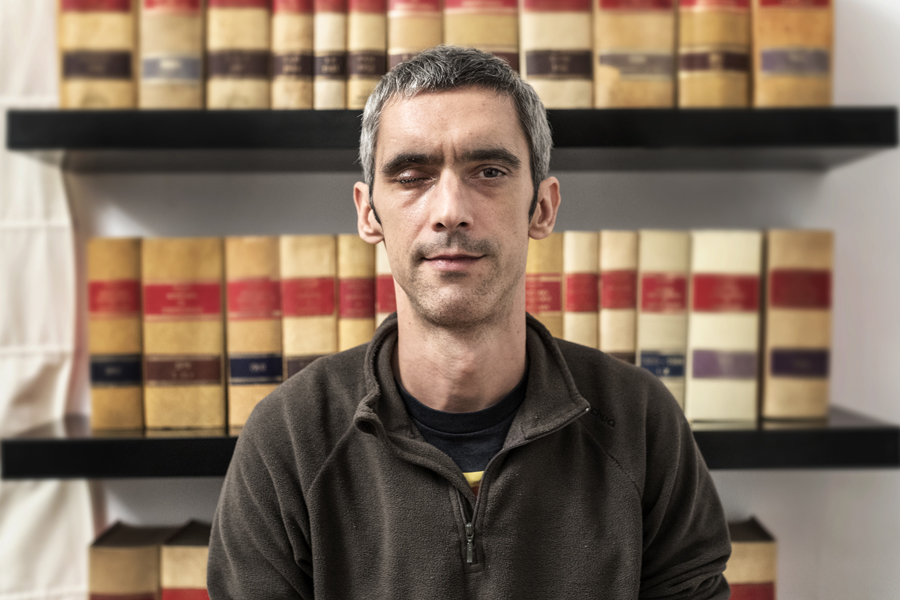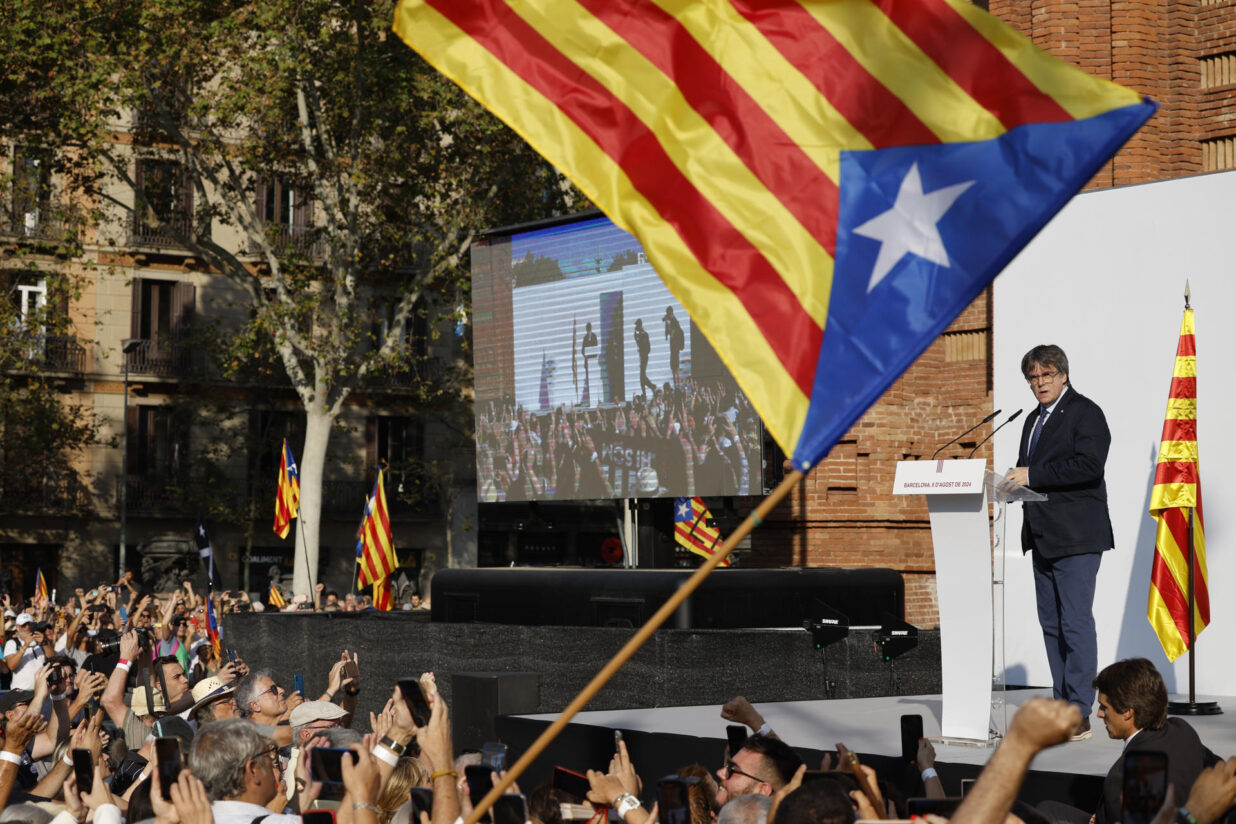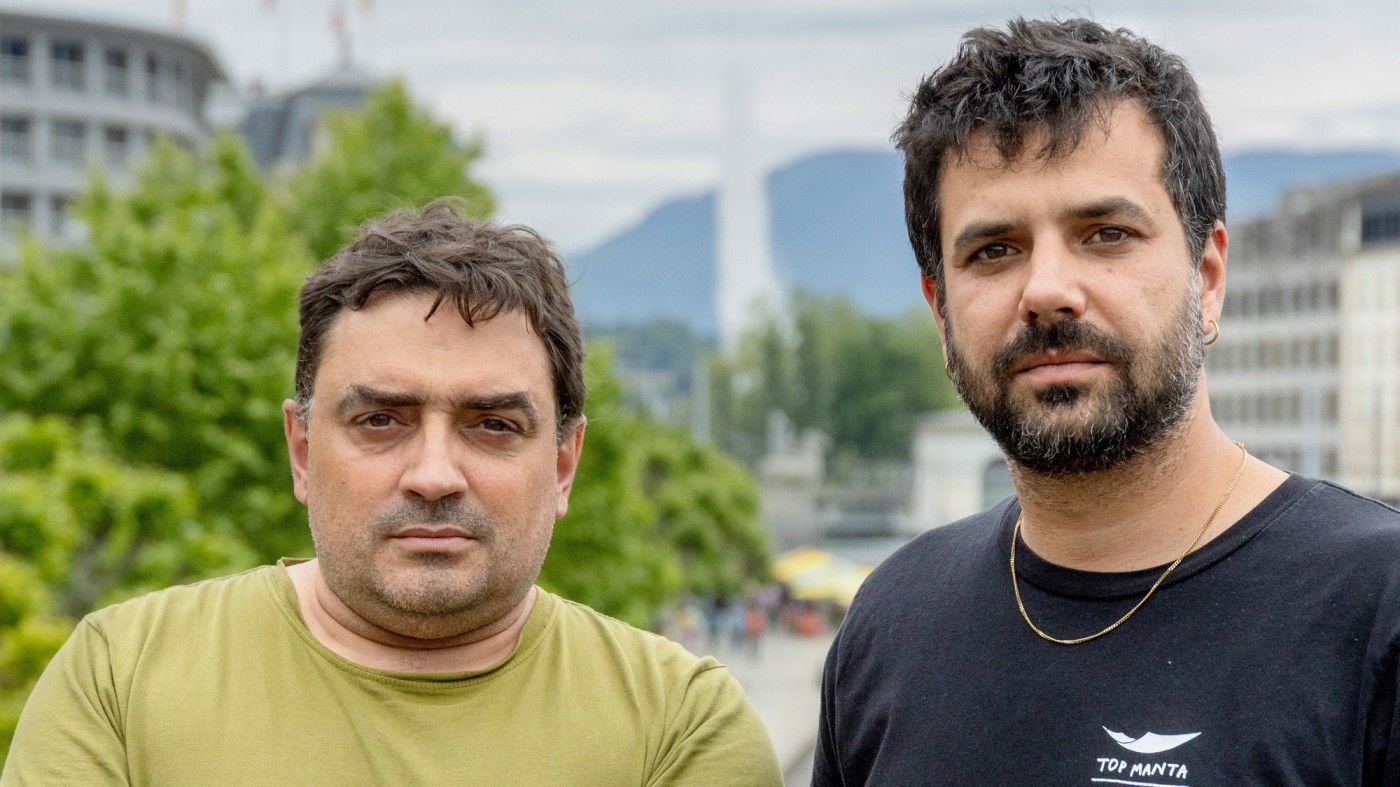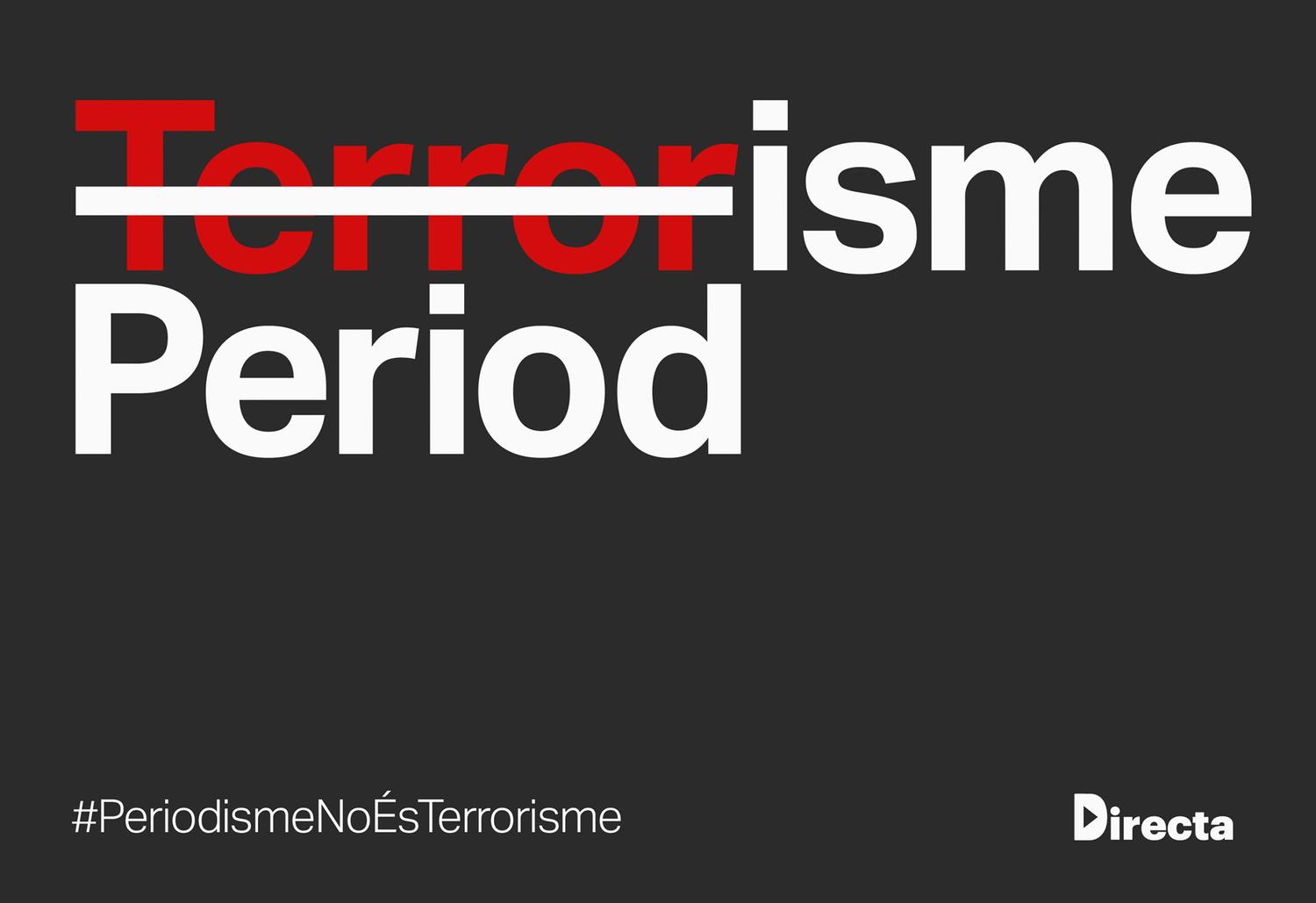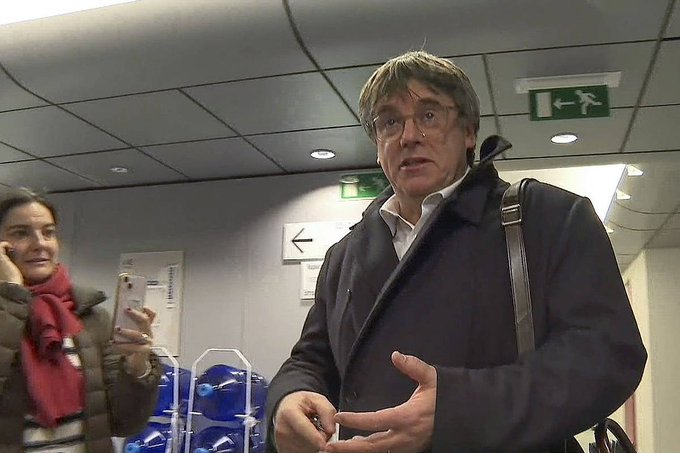The binding referendum is convened on the website of the Republic of Catalonia
- What is the process of independence on the eve of the Diada? Nervousness and illusion are spreading in the sovereign movement of Catalonia. In the Diadas of recent years, the independentists have made great demonstrations of strength: Will those feats be repeated? The doubts are great, but there is no shortage of forces.

In recent months, there have been many doubts about the process of independence in Catalonia. There are many reasons for this, but basically there are discrepancies between Junts Pel Yes and the Cup. Proof of this is the Generalitat’s budgets this year, in which both forces have not agreed and President Carles Puigdemont has called for a motion of confidence in Parliament by 28 September. The time is no joke: if it is not approved, if the Cup does not support, Parliament will be disbanded and new elections will be called. At the moment, independence doesn't want that. It would be the failure of the “procés”.
When you still remember the incidents of the investiture session of Artur Mas, the Cup has had to hear a lot of comments from the ranks of Junts Pel Yes. The internal tensions have also been significant among the Cuperos, with the sound of division throughout the country. On both sides, they stress that it is now up to them to prepare the confidence motion properly: The Cup has put on the table the 2017 budgets and the RUI (Unilateral Referendum of Independence); the security of Junts Pel Yes to end the legislature.
Basically, one of the main problems is lack of confidence. In fact, the current government was elected to last 18 months. Its main task would be to prepare for disconnection with the Spanish State, to proclaim unilateral independence and to dissolve Parliament for the holding of the new elections. The new Parliament should draft the Constitution of the Catalan Republic, which would then be put to a referendum.
Confidence, however, is not the only most basic problem: Results of the 2015 elections Independence obtained a clear majority in the Basque Parliament, but from the point of view of the votes it did not exceed 50% of the votes cast. The Cup declared the day after the elections that this did not give sufficient legitimacy to declare the independence of Catalonia. It is the weakest part of the current process and that is why the idea of the new referendum has been raised; in other words, a tool is needed to know what the Catalans really want.
The RUI, the binding referendum of
the Cup and other sectors have serious doubts about the will of the Generalitat, especially the breakdown with the Spanish State, and fear that the process will materialise. Faced with this situation, the Cup has put on the table a binding and unilateral referendum, and gradually it is gaining acceptance throughout the independence movement in Catalonia.
What is the core of the new move? That at some point it is necessary to break with the State, be it the RUI or the unilateral declaration of independence (the famous IUD), as envisaged in the current process. If it is to be broken, then it is better to break it with the democratic question of “independence yes or no” than with the question of “this Constitution yes or no”. Everyone will understand the question better, nothing to say at international level, than the first option the second. This would, in essence, be one of the main reasons for the RUI.
In the referendums held in Quebec in 1980 and 1995 there was no agreement and the Federal Government declared them illegal.
To date, CUP, ANC, ERC and Regroupment, for example, agree with the RUI. Both in the Generalitat and in the PDC (Democratic Party of Catalonia, former CDC of Artur Mas) are ready to analyse it and the proposal is gaining more and more strength. However, Junts pel Yes believes that, if carried out, it would be a section to add to the current process and not a tool to question it.
The independentists who oppose the RUI consider that the risks would be high, first because of the clash with Spanish legislation, second because of the repetition of the consultation in November 2014 and third because of the risk that the counterparts would not participate. The latter is not a joke and in addition to the clear opinion of the PP, Ciutadans and the PSOE, In Comú has already expressed its rejection of the RUI.
As spokesman Xavier Domènech made clear last week in the inaugural session of Congress, they are in favour of an agreed referendum. The tensions between the two souls on the Catalan left around this issue are hard. The Cup believes that the date of the RUI would be good in June 2017, among other reasons because the current Generalitat would then meet the 18-month deadline and would have to be dissolved. Among the supporters, however, it is not at all clear when this referendum should be held, because that would be the time for the real break.
The unilateral referendum in Quebec
is a permanent example of Quebec and Scotland, both published as models for an agreed referendum. In reality, however, they are not the same from the point of view of the agreement. It was an agreement between London and Edinburgh for the holding of the 2015 referendum, not between the federal government of Canada and that of Quebec. In the referendum held in Quebec in 1980 and 1995 there was no agreement and they were declared illegal by the Federal Government. The Supreme Court of Canada, too, but did not prohibit them, because that could lead to greater harm than holding a referendum.
But the Supreme Court of Canada analysed the appeal lodged by a group of citizens against the 1995 referendum and hence the famous 1998 judgment: The Government of Quebec could not declare unilateral independence, but if independence won in the referendum, the federal government should sit down to negotiate with that of Quebec. Both sides endorsed the decision and today it is of great importance in the processes of global self-determination. But it was not the Federal Government that brought the appeal, and it was far removed from the whole matter of the legal cause of the referendum, at least in the front line, as the government of the pp of Madrid in Catalonia is doing.
The Law on Legal Transition The Law on Legal Transition adopted by the Parliament of Catalonia at the end of
July provides at a time of the independence process for a disconnection with Spanish legislation, which is what the Law on Legal Transition should provide for in order to avoid a legal vacuum in the passage from one moment to the next. This transition will take place with three laws that will regulate three basic areas: the constituent process, social security and the Hacienda of Catalonia. In fact, according to those who lead the process, the adoption of these laws will be the time for the break with the Spanish State, that is, the unilateral declaration of independence. From that moment on, the Parliament and the Generalitat of Catalonia would only comply with the Catalan legality and the Catalan law. For many, this would be the right time to do the RUI, immediately after the passage of these laws.
And what does En Comú say?The strong movement led
by Ada Colau has officially taken a stand against the current Generalitat process, but not without the slightest doubt and internal tension. In fact, one thing is what the parliamentarians of Catalunya Yes Que es Pot can think and another is what the voters of En Comú have in their heads. There is no doubt that there are many independence people in those bases, and that they will vote for Ada Colau for the mayor of Barcelona, but that in a referendum they would vote for independence. How many are they? That is, once and for all, what independence wants to count.
Contradictions and fears are not few in En Comú. Although Junts Pel Yes and the CUP roadmap do not agree, they have announced that Ada Colau and En Comú will be on the Diada this year, organised by the ANC and Ómnium, clearly indicating that they support the Parliament and Government roadmap.
Within En Comú it is also not clear how to act, but, in general, they agree with the idea of strengthening the sovereign process, yes, with another roadmap. In an article written this summer by Gerardo Pisarello, number two by Ada Colau at the Mayor of Barcelona, defended the sovereign process of the left. That is to say, in his view, with the results of the last elections, sovereign power has taken a turn to the left, and that should be reflected in the process. What's that like?
The nexus would be the Catalan Republic. According to Pisarello, the holding of a referendum by Spain cannot be expected. So what do you do? The dissolution of this Parliament, the call for new elections and the channelling of leftist sovereigns strengthened through the forces of ERC, En Comú and the Cup, among others, the creation of the Catalan Republic. Here too the new Parliament would be a constituent and, once the Constitution was drafted, a referendum would be held. In Comú, then, I would bet on a confederal state with the rest of Spain. In his article, Pisarello called all this “non-subordinate constituent process.”
Vilaweb’s well-known director and independentist, Viçent Partal, criticized the proposal in an August editorial with this title: “Sovereign but not independent, or how a meaningless debate can be conceived.” These days of the
Day Eve of the Diada are of heart rather than head. Once again, September 11 will show that independence is strong, but Junts Pel Yes and the Cup will have to agree on many things about the road map and government action, especially before the September 28 confidence motion. With the most independent parliaments and governments of all time, the independence movement has the task of making the most difficult decisions of all time. In what direction can not be said, but in the Diada of 2017 the situation of the hypothetical Catalan Republic will be very different.
Uztailaren amaieran Espainiako Konstituzio Auzitegiak atzeratu egin zuen Kataluniako Legebiltzarrarekiko talka, ustez irailaren 11ko Diadaren ondorengorako utziz. 2015eko azaroaren 9an Legebiltzarrak onartutako deskonexioaren hasieran oinarritzen da guztia. Espainiako Konstituzio Auzitegiak legez kanpokotzat jo zuen onartutako adierazpena. Kataluniako Legebiltzarrak, aldiz, Prozesu Konstituziogilearen azterketa batzordea abiarazi zuen, auzitegiari muzin eginez.
Iragan uztailaren 27an aurkeztu zituen bere ondorioak batzorde konstituziogileak eta Parlamentuak onartu egin zuen Junts Pel Sí eta CUPeko botoekin. Konstituzio Auzitegiak astebete lehenago jakinarazi zion Legebiltzarrari ez onartzeko batzordearen ondorioak, eta hala egiten bazuen zigorrak egongo zirela. Konstituzio Auzitegiari Legebiltzarrak orain arte egindako desobedientziarik esanguratsuena litzateke uztailaren amaierako hau.
Kataluniako Errepublikaren oinarriak
Duela urtebete PPren Gobernuak bultzatutako Konstituzio Auzitegiaren erreformarekin, auzitegi honek zuzenean zigor dezake Kataluniako Legebiltzarra, baina oraingoz ez du horrelakorik erabaki. Legebiltzarreko idazkaria eta Mahaiko kideei ohartarazpenak egin dizkie, eta ez da hortik harago joan. Legebiltzarraren desafioa ikusita, abuztuaren 1ean bildu zen urgentziaz Konstituzio Auzitegia, baina ez zuen inongo zigor neurririk hartu. Gertatutakoa jaso zuen eta Diada ondorengoan berriz biltzea erabaki zuen, egun esanguratsuaren aurretik Kataluniako independentismoarekiko talka saihestu guran.
Espainiako fiskaltzak, aldiz, Konstituzio Auzitegiari eskatu dio jada ekin diezaiola bide penaletik Carme Forcadell Legebiltzarreko lehendakariaren kargugabetzerako. Hala gertatuko balitz, independentistek uste dute Forcadellek normal jarraitu behar duela lanean, kargugabetzeari muzin eginez. Begi bistakoa da, alabaina, hori zilegitasun borroka hastea litzatekeela, besteak beste Espainiako legediaren arabera, Forcadellek sinatutako guztia balio gabekoa litzatekeelako.
Eta zer da zehatz mehatz Konstituzio Auzitegiak bertan behera utzi duena? Legebiltzarrak onartutakoaren arabera, independentzia prozesu honek hiru fase izango ditu. Lehena herritarrek parte hartzeko prozesua izango da eta Forum Sozial Konstituziogileak gidatuko du; forum hau alderdiek eta gizarte mugimenduek osatuko dute. Bigarrenak Espainiako Estatuarekiko deskonexioa ekarriko du, hauteskunde konstituziogileak egingo dira eta ateratzen den parlamentuak Kataluniako Errepublikako Konstituzioa idatziko du. Hirugarren fasean, erreferendum bidez Kataluniako gizarteak Konstituzio berria bozkatuko du.
Lau agenteak lesio-delituengatik ikertzen ari dira eta horrek galarazten du 2024ko amnistia aplikatzea. Polizia horietako batek, ustez, gomazko bala batekin begi bat zartatu zion Roger Español kataluniarrari.
Walk from a train station, two friends and a hug. This hug will be frozen until the next meeting. I'll come home, he'll stay there. There, too, will be free the painful feeling that injustice wants us to catch. Jesús Rodríguez (Santa Coloma de Gramenet, 1974) is a journalist,... [+]







